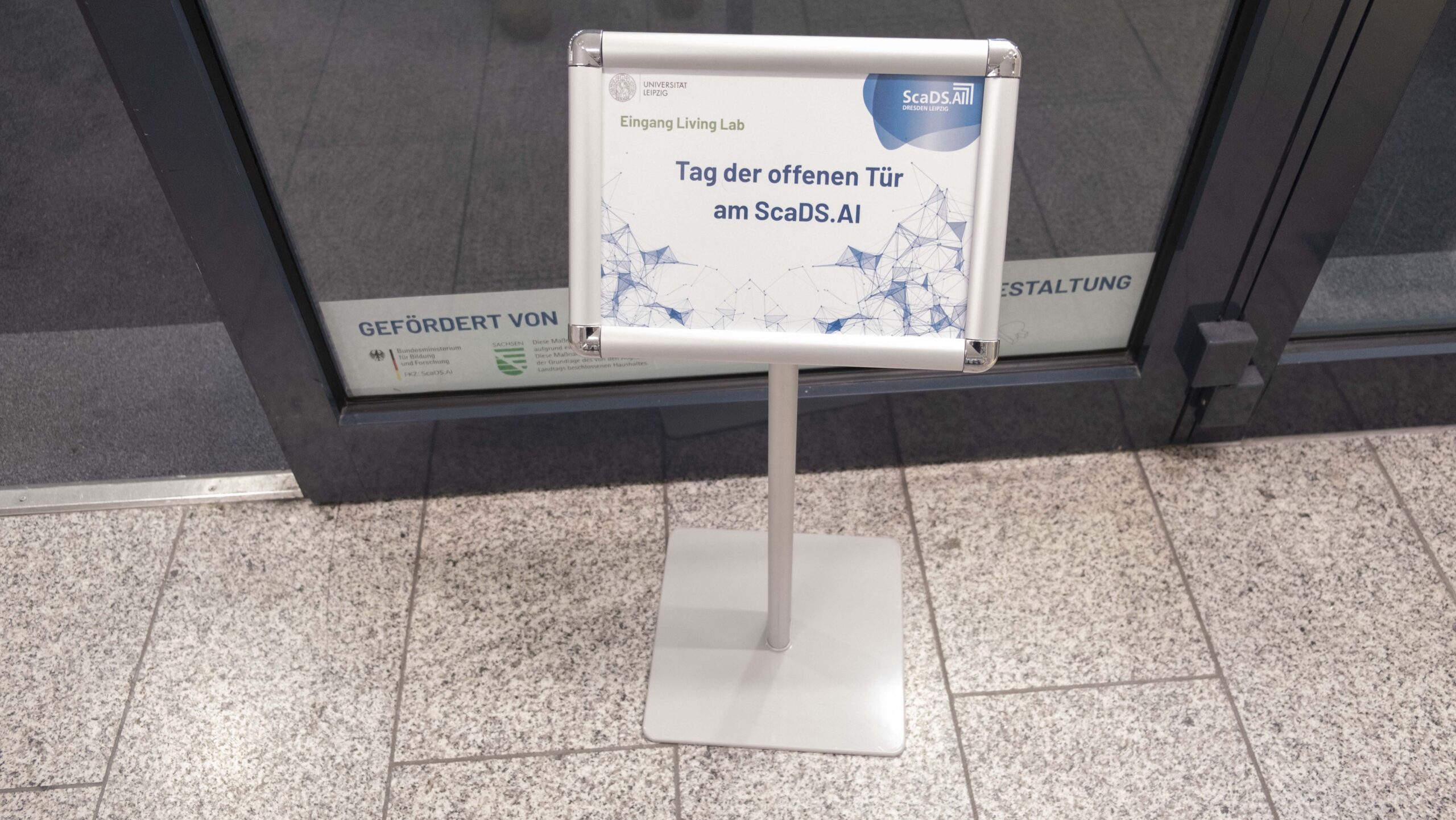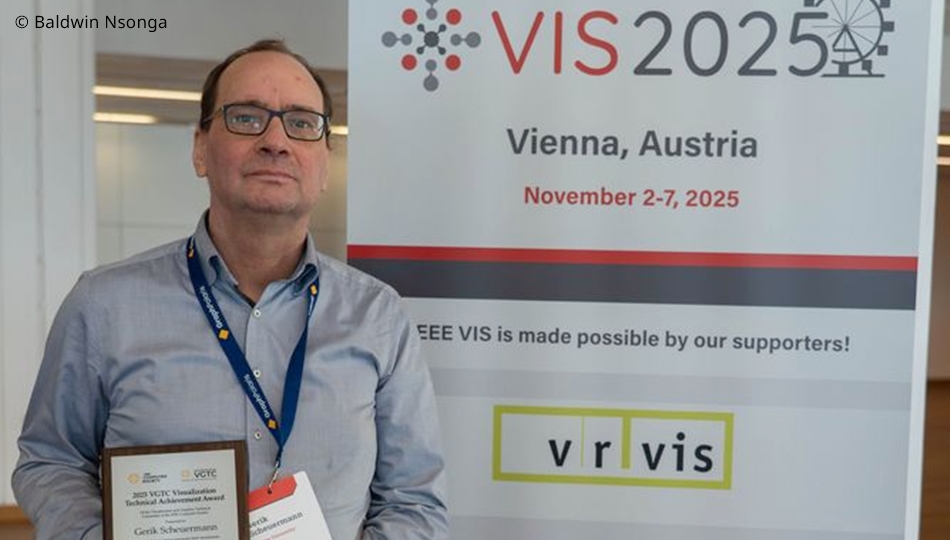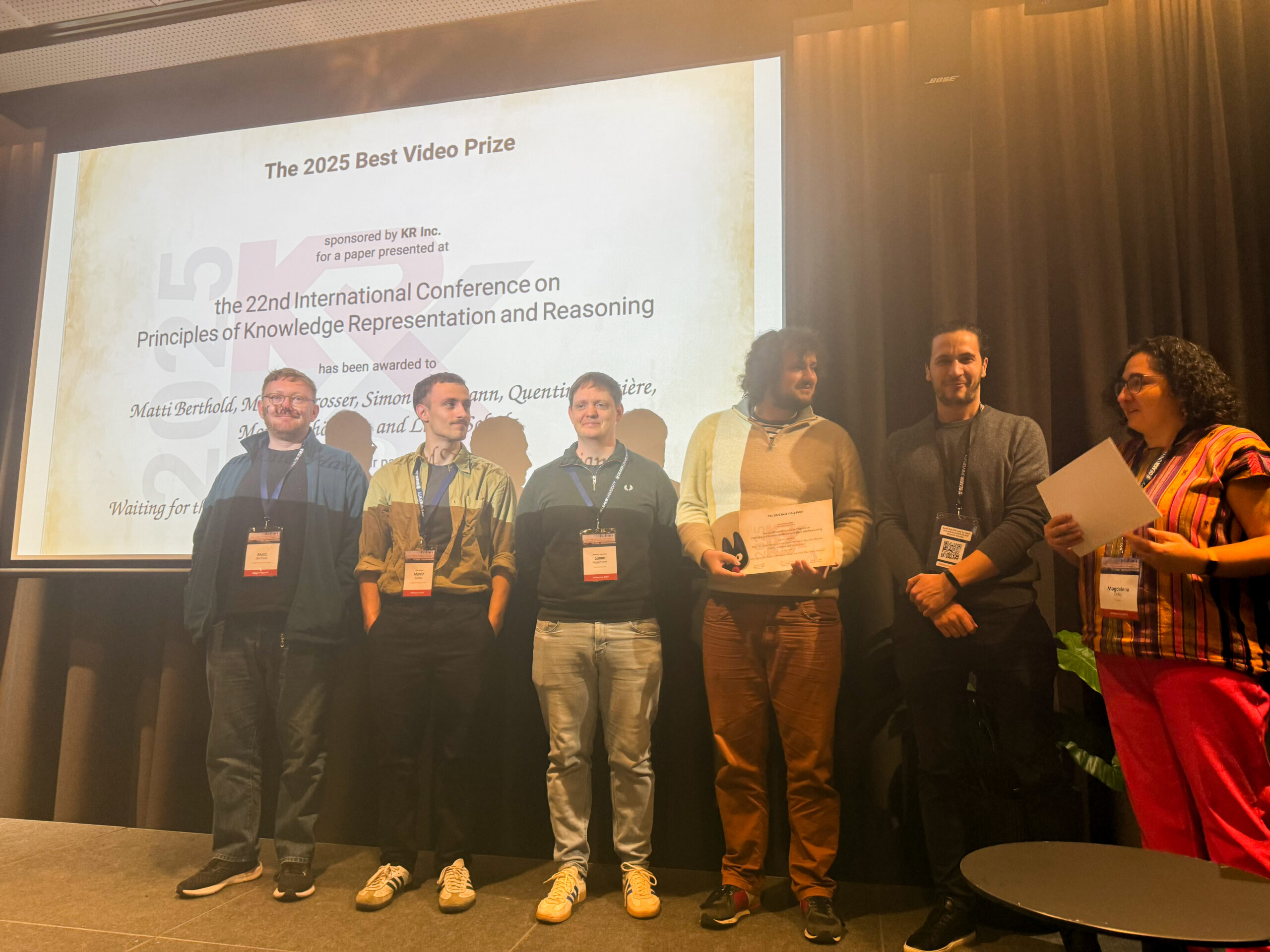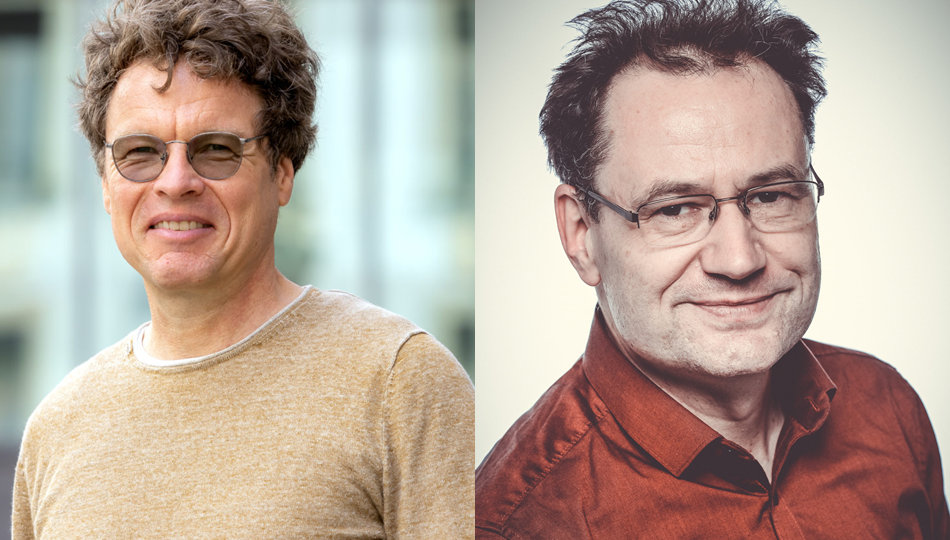
March 11, 2024
ScaDS.AI welcomes Prof. Hildebrand and Prof. Rosenow as new associated members

ScaDS.AI Dresden/Leipzig is very pleased to welcome Prof. Dr. Peter W. Hildebrand and Prof. Dr. Bernd Rosenow as associated members of the Center. Following their presentation at the end of January, the Executive Board of the AI Competence Center unanimously confirmed the admission of both Professors as associated members. In this position, they will be able to cooperate more closely with ScaDS.AI and jointly develop projects based on their own research work.
“We are delighted that these renowned colleagues are interested in cooperating with ScaDS.AI. Prof. Hildebrand strengthens our biomedical application area and Prof. Rosenow strengthens our methodological research in statistics and machine learning.”
– Prof. Dr. Erhard Rahm (Director ScaDS.AI Dresden/Leipzig)
Prof. Dr. Peter W. Hildebrand
After studying biology in Regensburg, Seville and Berlin, Peter W. Hildebrand completed his diploma at the Humboldt University in Berlin. His doctorate and habilitation at the Humboldt University and the Charité Berlin focused on the development and application of bioinformatic and biophysical tools to better understand the structure-function relationship of membrane proteins. As a professor for biophysical computer simulations, Peter W. Hildebrand uses large scale biophysical computer simulations to investigate the pharmacology of receptors at atomic detail. Furthermore, he is developing innovative tools for protein visualization in the WWW to foster accessibility and interoperability of protein dynamics data using machine learning methods.
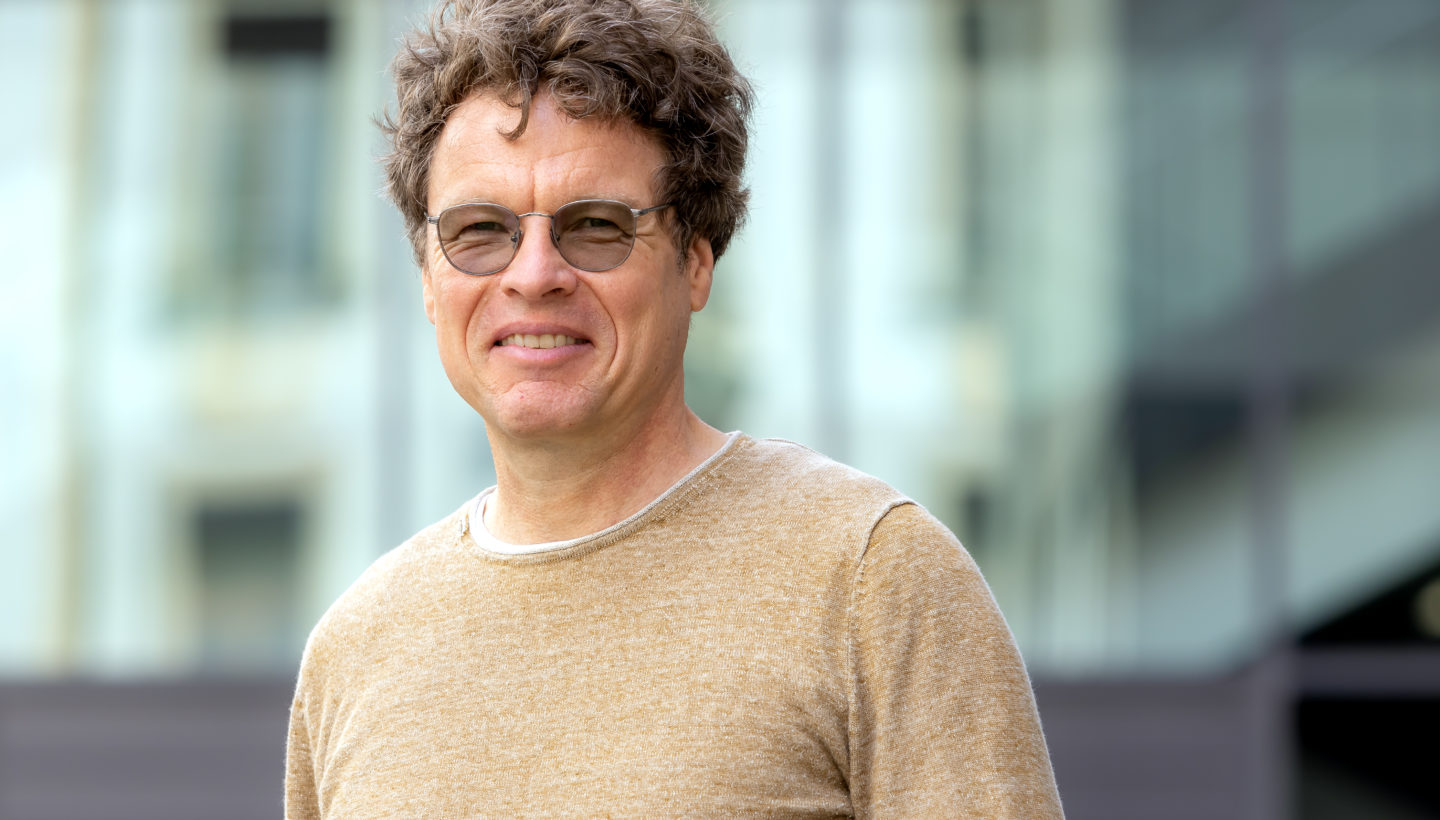
“My main interest in Scads.AI is the development of interactive visualization tools for molecular dynamics simulations of proteins integrating classical analysis methods of trajectories with innovative machine learning. Moreover we plan to combine biophysical methods with machine learning to improve the performance of molecular dynamics simulations”
– Prof. Dr. Peter W. Hildebrand
Prof. Dr. Bernd Rosenow
Prof. Dr. Bernd Rosenow has made significant contributions to the study of complex quantum systems and the interface between statistical physics and artificial intelligence since taking up his position as Head of the Department of Statistical Physics at the Institute of Theoretical Physics at Leipzig University in 2010. His commitment to exploring the complex behavior of these systems has not only improved our understanding of the physics underlying them. It also aims to apply these findings to the development of artificial intelligence technologies. By integrating principles of statistical physics with computational models, his research is interdisciplinary and bridges the gap between theoretical physics and practical AI applications.
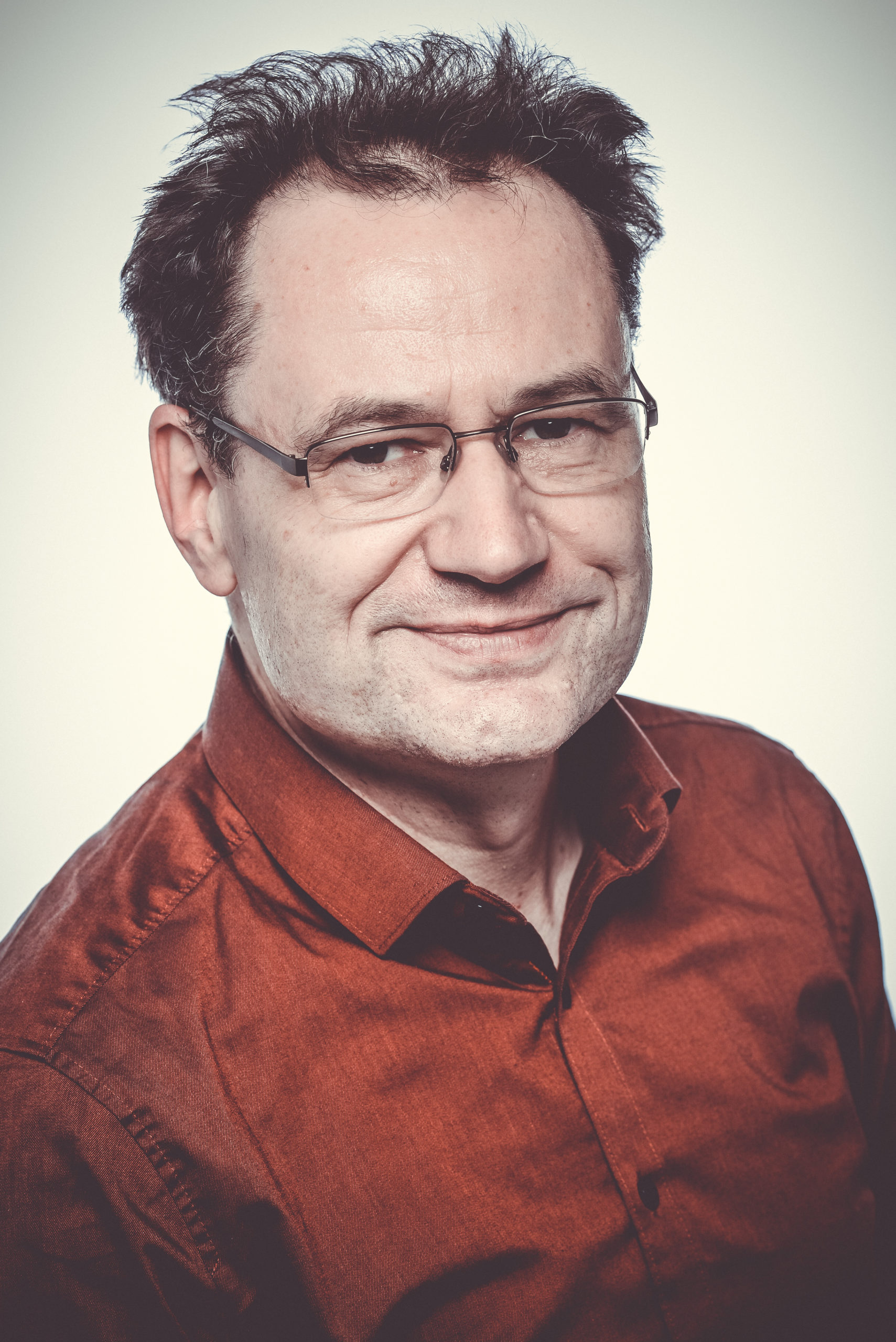
“As a member of ScaDS.AI Leipzig, I look forward to bringing my expertise in statistical physics to the analysis of neural networks, with the goal of combining the understanding of complex systems with AI technology for breakthrough advances.”
– Prof. Dr. Bernd Rosenow
Associated members of ScaDS.AI Dresden/Leipzig
ScaDS.AI Dresden/Leipzig awards the title of associated member to selected PhD scientists and professors with a close connection to the center’s research focus. The prerequisites for this are an international research activity, a high level of interest in cooperation and the willingness to contribute research work to ScaDS.AI Dresden/Leipzig. The center supports its associated members in networking as well as in developing joint projects. This status also allows participating in internal general meetings, lectures and attending conferences.
ScaDS.AI Dresden/Leipzig
ScaDS.AI Dresden/Leipzig, the Center for Scalable Data Analytics and Artificial Intelligence, is one of five national competence centers for Artificial Intelligence (AI) funded by the German government’s AI strategy. It was established as a permanent research facility for AI, data science and big data in 2023.
With locations in Leipzig and Dresden, ScaDS.AI Dresden/Leipzig combines the excellent AI and Data Science expertise of Leipzig University, the TU Dresden, and ten non-university research institutions. ScaDS.AI Dresden/Leipzig aims to establish itself as one of the leading centers for AI and Data Science in Germany. At the University of Leipzig and the TU Dresden, up to 12 AI professorships and an additional Humboldt Professorship will be established to increase research excellence and place applied AI research on a broad foundation. The center of excellence thus plays a unique and central role in the implementation of the federal AI strategy.
ScaDS.AI Dresden/Leipzig is funded by the German Federal Ministry of Education and Research (BMBF) and the Sächsische Staatsministerium für Wissenschaft, Kultur und Tourismus (SMWK).
More information about the associate member program of ScaDS.AI Dresden/Leipzig

